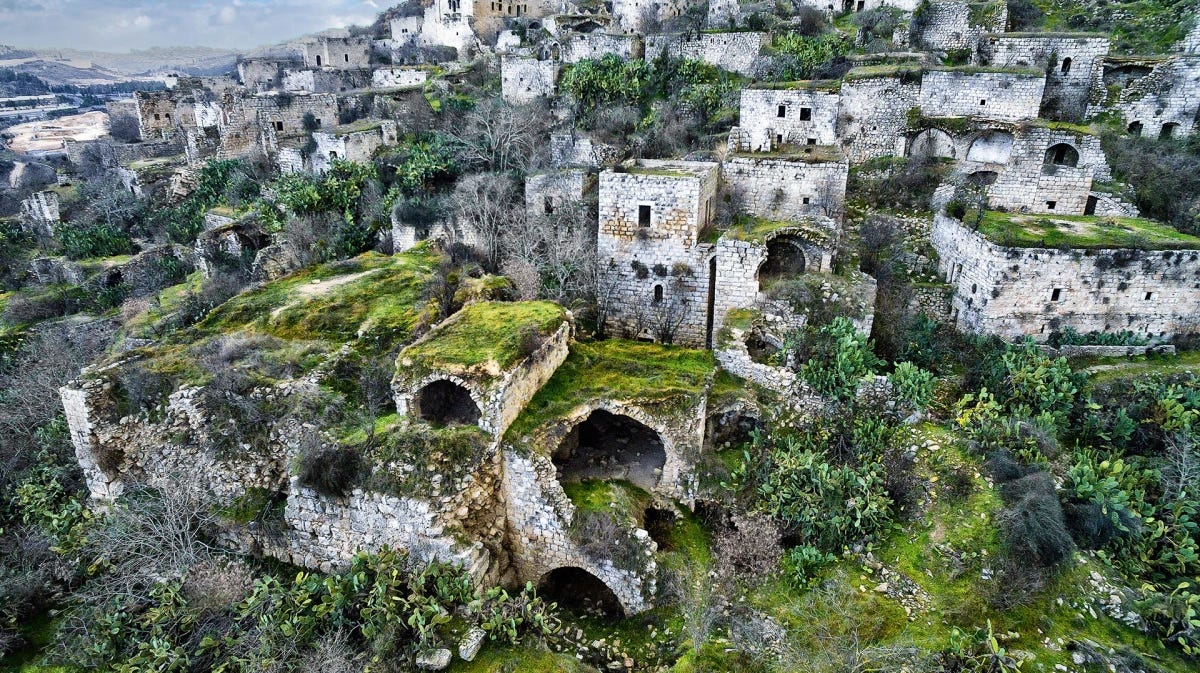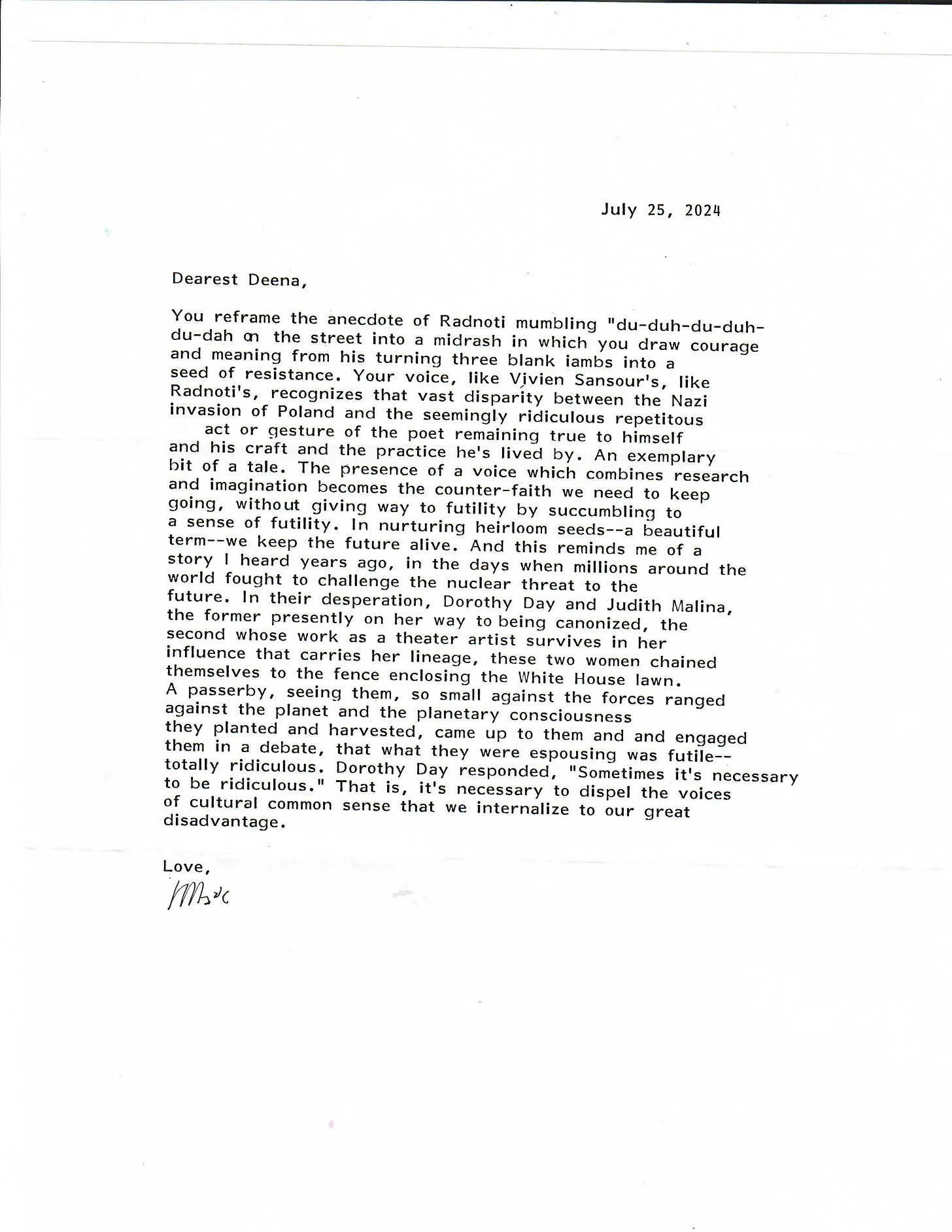This essay site, these desperate love letters to the wounded earth, seek ways to meet these terribly broken and dangerous times. Truly, I am unable to understand how we became so murderous and brutish. I don’t know if I will find an answer to that question this summer while I am working on a new novel, Broken Lambs, but, I do know that I am learning more and more deeply the soul anguish that our power struggles, violence and militarism inflict upon us. And also that it is our sacred task to create cultural niches of consciousness, like Terma, in Tibetan Buddhism, the hidden teachings that are revealed when they are needed and can be received, to inform and protect the future.
The last essay, Protecting the Heirloom Seeds of Consciousness, began by speaking of Miklós Radnóti a Hungarian Jewish war poet who was murdered by the Royal Hungarian Army during the holocaust. When his friend saw him on the streets of Budapest mumbling ‘Du-duh-du-duh-du-duh, he said, “Don’t you understand? Hitler is invading Poland!” Radnóti said, “Yes, but this is the only thing I have to fight with.” When I read about Radnóti in Wikipedia, I imagined that he was walking through the city, reciting a new poem and it’s rhythm under his breath, so that it would be preserved for the future. I was moved to consider the wonder, as with Terma, (hidden treasures), from Tibetan Buddhism, that the past safeguards the future.
The Shona Nganga, (healer) Mandaza Kandemwa told me that the task of the dead, of the ancestors is to protect the living. That’s why we create ancestor altars – so the dead can have proximity to us. He said our lives are our training so that when we cross over, we can take good care of our descendants. It is always about the future. Similarly, Native American wisdom calls us to consider the welfare of the seventh generation when making any decision.
I was not surprised when my dear friend the poet, Marc Kaminsky, wrote in response to these words about Miklós Radnóti because I think of Marc as the quintessential Yiddish poet. However, for me, Marc’s most remarkable text, is The Stones of Lifta1. The first lines, from the opening poem, Hinani, reveal why it is clear to me that Marc would also respond to a contemporary essay honoring the work, the gathering of Palestinian heirloom seeds in the West Bank by the Palestinian artist and visionary, Vivien Sansour.
HINANI
Unworthy as I am, when I saw
Footage of my friend Menachem climbing beneath
The Jerusalem hills with an old man—
A displaced person – an Arab
Who guided him into the ruins of his home
In Lifta, I felt something
Become so clear and actual to me
As if for one pulse I heard
A voice speaking to my heart
… it said to me, Go
To Lifta….
Marc Kaminsky is also an elder, so it is no surprise that he wrote a letter to me and sent it by post, the old way, and not by email. Accordingly, that letter, in which he honors the ancestors, is reproduced here and concludes this essay.
My students have been with me for many years and have grown in unimaginable ways both in their lives and in their works. This fall I’m opening up attendance to new students who’d like to join a writing circle. I’m also now taking new students into the 19 Ways. For more information, or to sign up, please email deenasassistant1222@gmail.com.
Dos Madres Press, 2019






A story in my wisdom tradition says that Noah made olive oil from the olive branch that the dove had retrieved, post-Flood. A vial of this same oil was passed down to Jacob, who re•crossed a river to preserve it. This, it's said (by our ancestral commentators) is the very same container of pure, untainted oil that was found by the Maccabees, when it came time to re•dedicate the Temple in Jerusalem. From the Flood to Hanukkah, were our ancestors looking out for us? The light from this oil still burns today, an eternal flame, to illuminate our path forward. May peace be with us, in our time.
The whole earth is our backyard. So the sensibility that is derided as ‘NIMBY’ is actually the path toward healing. When we all protect our backyards the earth will be safe from depredation.